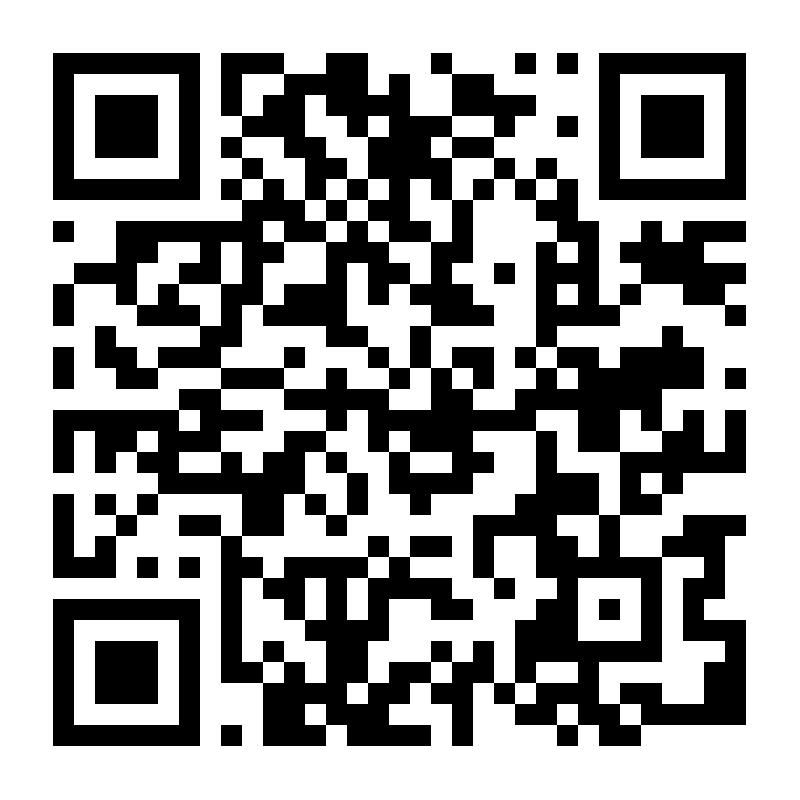NUS Summer School

Scan to sign up
Participation process
1.Sign up: Scan the above QR code, fill in the personal information, select the project and subject, submit the registration information, and complete the registration
2.Pay the fees: Please pay the fee after reading and signing the agreement
3.Preparation:
- Independent preparation: Registered students can prepare their language and knowledge independently according to the selected courses
- Join the class group: Pay attention to the class opening email 1-2 weeks before the project starts, and join the group in time
4.Participation: Attended classes on time and completed the homework and completion assignments assigned by the tutor
5.Obtain the authoritative project completion certificate: Students who meet the completion requirements (attendance; Completion work, etc.), will receive an official project completion certificate
6. More opportunities: At the end of the project, students with excellent performance will have the opportunity to get an interview invitation, and the interview content will have the opportunity to be posted on ASDAN's wechat or Outlook student weekly.In addition, participating students can also sign up to join Astan World Famous School Club, Club members will have the opportunity to participate in more world famous school projects as a teaching assistant, and get the opportunity to communicate and cooperate with international famous school tutors.
Subjects
Data Analytics and Mathematical Statistics
Biomedicine
Economics
Psychology
AI and Machine Learning
Media Communication and Marketing
— National University of Singapore —
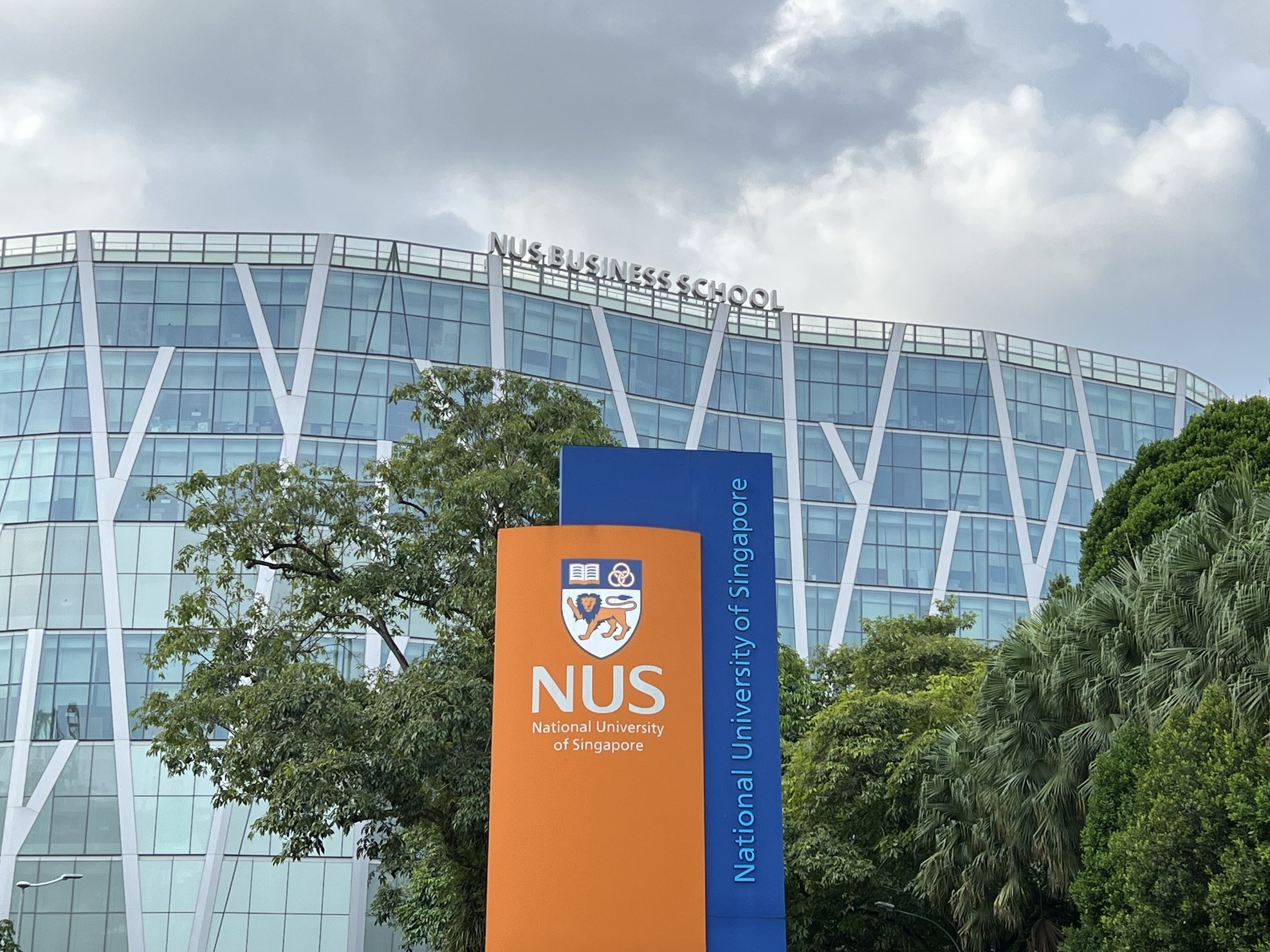
National University of Singapore
The National University of Singapore (NUS) is a leading global university centred in Asia. NUS is well known for its research strengths in Mathematics, Economics, Life Sciences, Social Sciences and Natural Sciences. In the QS World University Rankings 2025, the National University of Singapore retains the top position in Asia and ranks 8th in the world.In the fields of data science and artificial intelligence, it ranks 6th in the world in the QS rankings. The majors of economics and econometrics and psychology both rank 1st in Asia. In the fields of life sciences and medicine and media studies, it ranks 2nd in Asia in the QS rankings.
School of Continuing and Lifelong Education
The National University of Singapore's School of Continuing and Lifelong Education (SCALE) was established in June 2016. It has curated a series of academic programs for outstanding global youth, aiming to expand knowledge, enhance innovative potential, instill a sense of global responsibility, and comprehensively cultivate 21st-century competencies. Through the innovative culture, outstanding academic influence, and global responsibility of the National University of Singapore, SCALE seeks to empower students in navigating the digital age and developing essential skills for the 21st century.
— Why Us? —
2024年暑假,阿思丹(ASDAN China)与新加坡国立大学持续与终身教育学院、文学暨社会科学院携手开放线下项目,同期开放数据分析、生物医学、人工智能与物联网、纳米物理、经济学、心理学六大主题学科,涵盖文理不同领域。阿思丹学员将亲自前往新加坡国立大学,在专业教师团队的领导下感受深度实践式学习模式,深入研讨学科尖端课题,拓展学术眼界,激发专业研究兴趣。
NUS Immersive Learning Experience
This programme is offered by the School of Continuing and Lifelong Education of the National University of Singapore. During the programme, students will immerse themselves in the NUS campus environment, experiencing the authentic atmosphere of a prestigious institution.
Certificate of Competence
Successful participants who complete all requirements of the programme will receive a certicate of completion issued by NUS. Some outstanding participants will also receive a commendation letter.
Project-based Learning
NUS Winter School selects and assigns tutors to conduct the course. The course is divided into two modules: lecture and tutorial. Project-based learning will develop students' teamwork skills while stimulating critical thinking, creativity, and problem-solving skills to prepare them for undergraduate study in the future.
Visits to Prominent Enterprises and Cultural Exploration
During the programme, students will have the opportunity to visit renowned Singaporean companies, engage closely with industry experts and workplace professionals, gaining insights into industry trends. Additionally, there will be opportunities to explore iconic entertainment and cultural venues in Singapore, such as the National Museum of Singapore, the Night Safari, and Merlion Park.
— Teaching Faculty —
*The final instructor will be decided by NUS
-

Dr. Edmund Low
National University of Singapore Senior Lecturer
Dr Edmund Low is a senior lecturer with the University Scholars Programme (USP) at the National University of Singapore. He has more than 14 years of academic and professional experience in the use of datadriven tools to answer questions in public health and the environment. His past projects include the use of programming and visual libraries to develop simulation models for automating workow processes, and the setting up of remote environmental sensing systems to automate real-time continuous monitoring, for early incident warning. Edmund holds a PhD in Environmental Engineering from Yale University.
Seow Teck Keong
National University of Singapore Deputy Director and Associate Professor
Professor Teck Keong has extensive teaching experience teaching basic biology and biochemistry courses in the Department of Biological Sciences at the National University of Singapore. His appointments as Resident Fellow of King Edward VII Hall and as Director for Residential Life and Resident Fellow at the College of Alice and Peter Tan have also motivated him to leave a lasting and positive impact on his students. -

Guillem Riambau
National University of Singapore Visiting Scholar, PhD from Boston University
Dr Guillem Riambau holds an undergraduate degree in economics and another one in political science, both awarded by the Universitat Autònoma de Barcelona (Spain). He obtained his PhD in Economics from Boston University in 2012 (USA). Dr Riambau has ample experience teaching in the most diverse settings and classrooms: he has lectured in Boston University, Harvard University, Universitat Autònoma de Barcelona, Yale-NUS College and NUS, among others. He currently holds an assistant professor position at the Universitat de Barcelona, and regularly visits NUS.
Jia Lile
National University of Singapore Assoc. Prof. in the Department of Psychology
Associate Professor Jia Lile graduated with a Bachelor of Social Sciences (First Class Honours) from the Department of Psychology, NUS, in 2007. In 2012, Assoc. Prof. Jia obtained his Ph.D. in Social Psychology from the Department of Psychological and Brain Sciences at Indiana University Bloomington, USA. He currently directs the Situated Goal Pursuit Lab (the SPUR lab) at the Department of Psychology. He is also a core faculty member of the Institute for Application of Learning Science and Educational Technology and the Center for Population Health. His research has received generous funding from the university and various public agencies. He has published dozens of research articles in internationally reputable outlets such as Journal of Personality and Social Psychology and Psychological Science. -

Amirhassan Monajemi
National University of Singapore Senior Lecturer
Dr Amirhassan Monajemi is a Senior Lecturer with the School of Computing, National University of Singapore (NUS). Before joining the NUS, he was with the Faculty of Computer Engineering, University of Isfahan, Iran, where he was serving as a professor of AI, Machine Learning, and Data Science. He has taught artificial intelligence courses, including AI, Advanced AI, Expert Systems, Decision Support Systems, Neural Networks, and Cognitive Science since 2005 at both undergraduate and postgraduate levels.
Karen Ong
National University of Singapore Distinguished Lecturer in the Department of Communications and New Media
Karen Ong is a guest lecturer in the Department of Communications and New Media at the National University of Singapore. She has over ten years of extensive teaching experience and has taught courses in mass communication, marketing, and branding at renowned universities such as the National University of Singapore, Nanyang Technological University, Singapore University of Technology and Design, and Republic Polytechnic. In addition, Karen has been engaged in public relations and brand marketing work in the international market for the past 20 years. Karen is committed to combining her public and marketing experience with her understanding of the education field.
— Course Content —

Data Analytics and Mathematical Statistics

Biomedicine

AI and Machine Learning

Economics

Psychology

Media Communication and Marketing
● How to reason with data
● Cleaning and exploring our data
● Using our sample and assessing the findings
● Investigating trends and relationships
● Reviewing our quantitative analyses
* The above are teaching themes from previous years' NUS schools, provided for reference.
medical research, aiding humanity in better understanding and addressing the challenges posed by various diseases. This course will guide students to explore multiple topics, including cell molecular biology, bioinformatics, experimental principles, and mathematical modeling in epidemiology. They will gain insights into how viruses enter hosts and interact with host cells, the pathways of infectious disease transmission, host characteristics, and environmental factors, thereby enhancing their understanding of the current phase of epidemiology.
● The foundation knowledge of cell and molecular biology
● Virus Action Research
● Mathematical Modelling of Epidemics Workshop
● Bioinformatics
● Science demonstrations
* The above are teaching themes from previous years' NUS schools, provided for reference.
● Introduction to AI
● AI Applications: State of the art
● Machine learning and Deep learning
● How to install and use Orange
● Clustering, Function Estimation, Classification and KNN
* The above are teaching themes from previous years' NUS schools, provided for reference.
● Economic Policies
● Microeconomics
● Macroeconomics
● Economic Theory
● The Impact of Economic Decision-Making
● Economic Choices in a Globalized Context
* The above are teaching themes from previous years' NUS schools, provided for reference.
● Psychological Analysis
● Classic Theories in Psychology
● Scientific Research in the Field of Psychology
● Modern Impact of Technology on Psychology
● Truth Behind Human Thought and Behavior
● Influence of Social Networks
* The above are teaching themes from previous years' NUS schools, provided for reference.
● Social Media Analysis
● Public Opinion Monitoring and Analysis
● Media Content Management and Assessment
● Principles of Crisis Public Relations
● Crisis Public Relations Strategy
* The above are teaching themes from previous years' NUS schools, provided for reference.
— Sample Schedule —
* The specific schedule may be subjected to slight adjustments based on actual circumstances.

— Academic Outputs —
*The relationship between PM10 and PM2.5
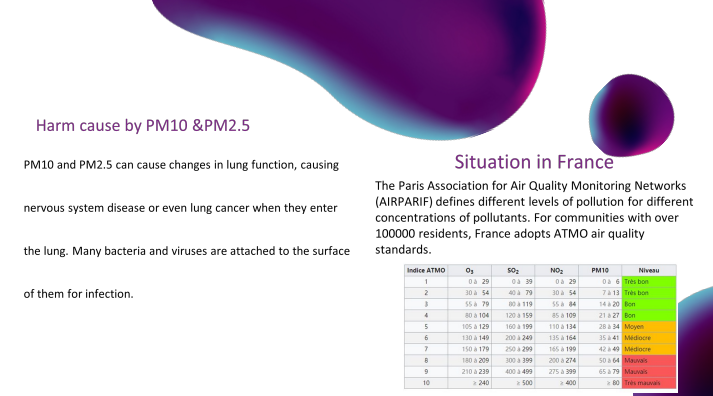
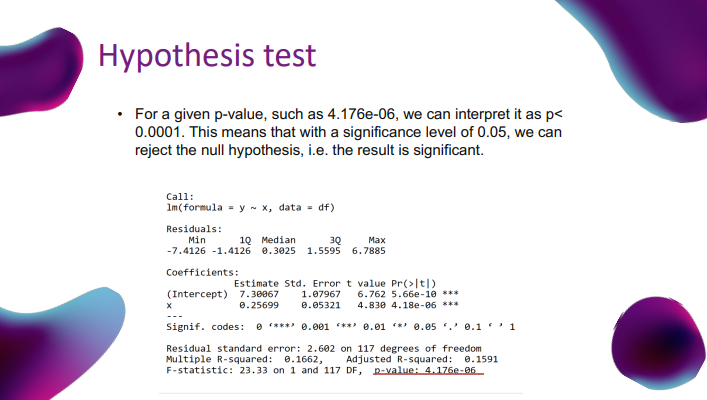
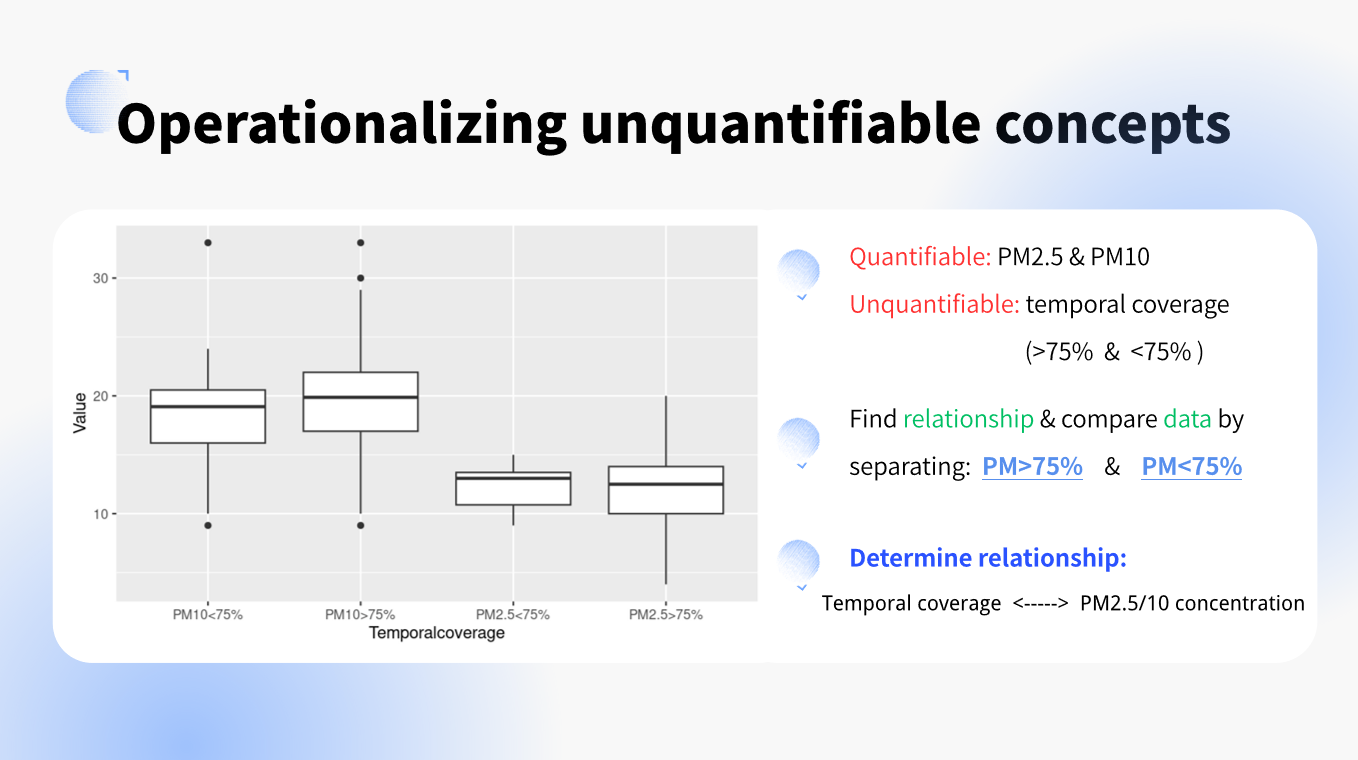
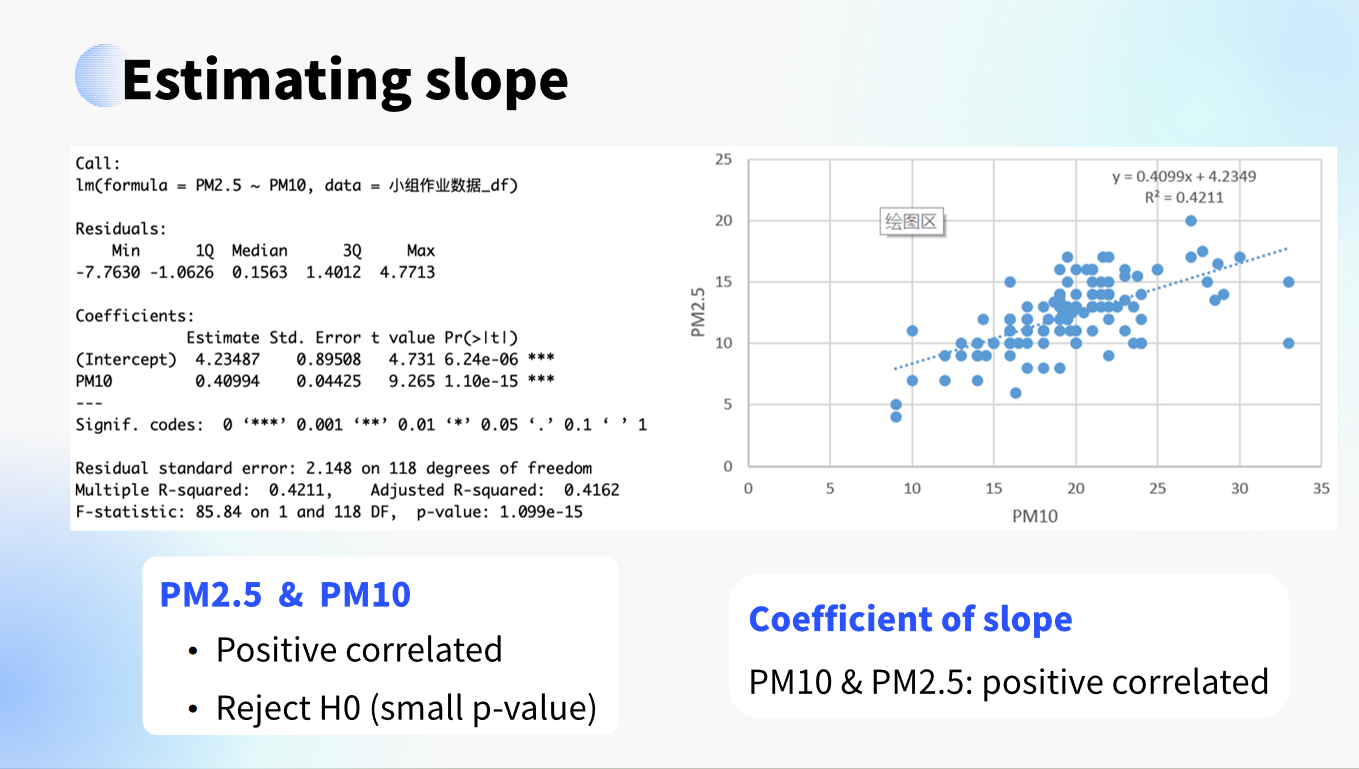
— Outcomes —
*The images shows the offcial participation certificate and assessment report sample of the School of Continuing and Lifelong Education (SCALE) at the National University of Singapore.
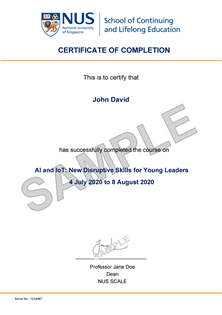
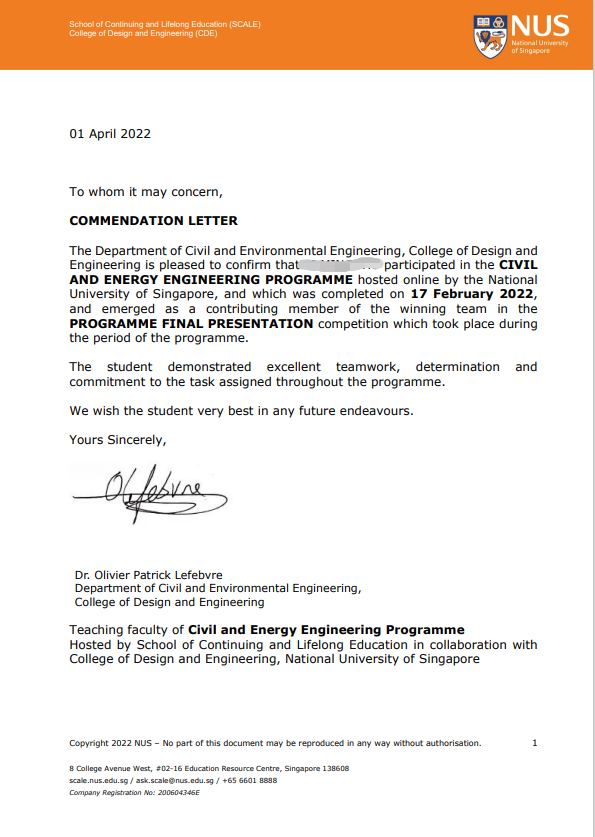
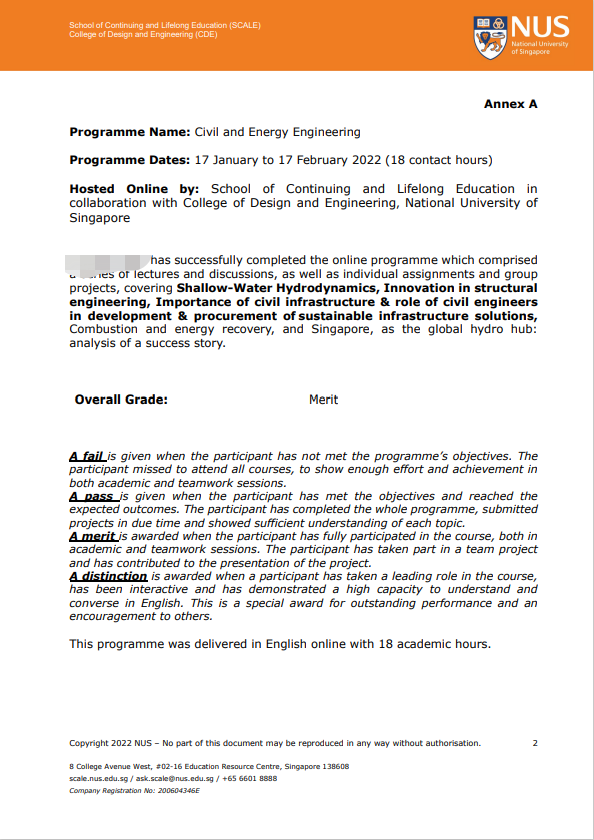
*The images shows the official participation certificate and evaluation report sample of the Faculty of Arts and Social Sciences (FASS) at the National University of Singapore.
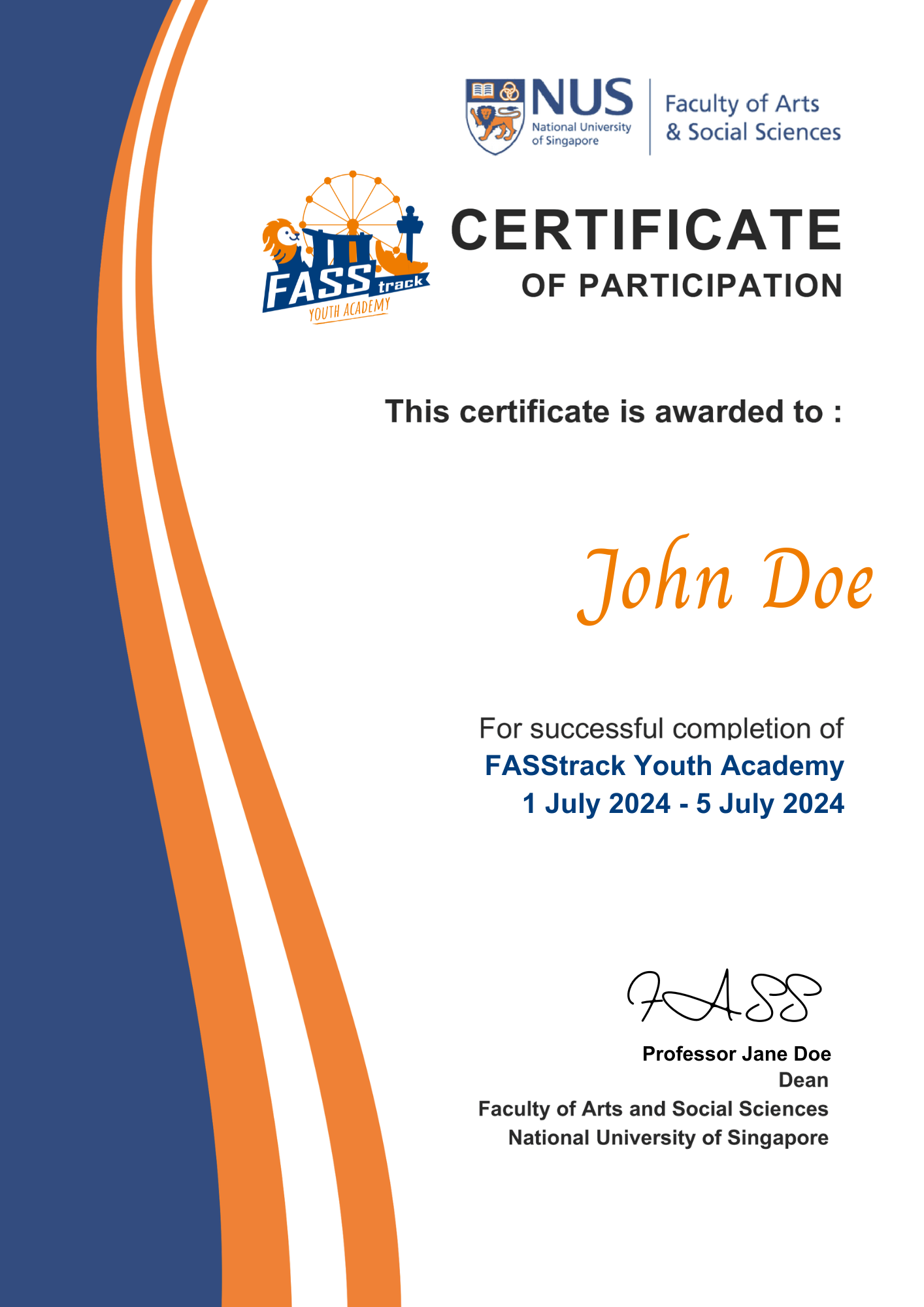
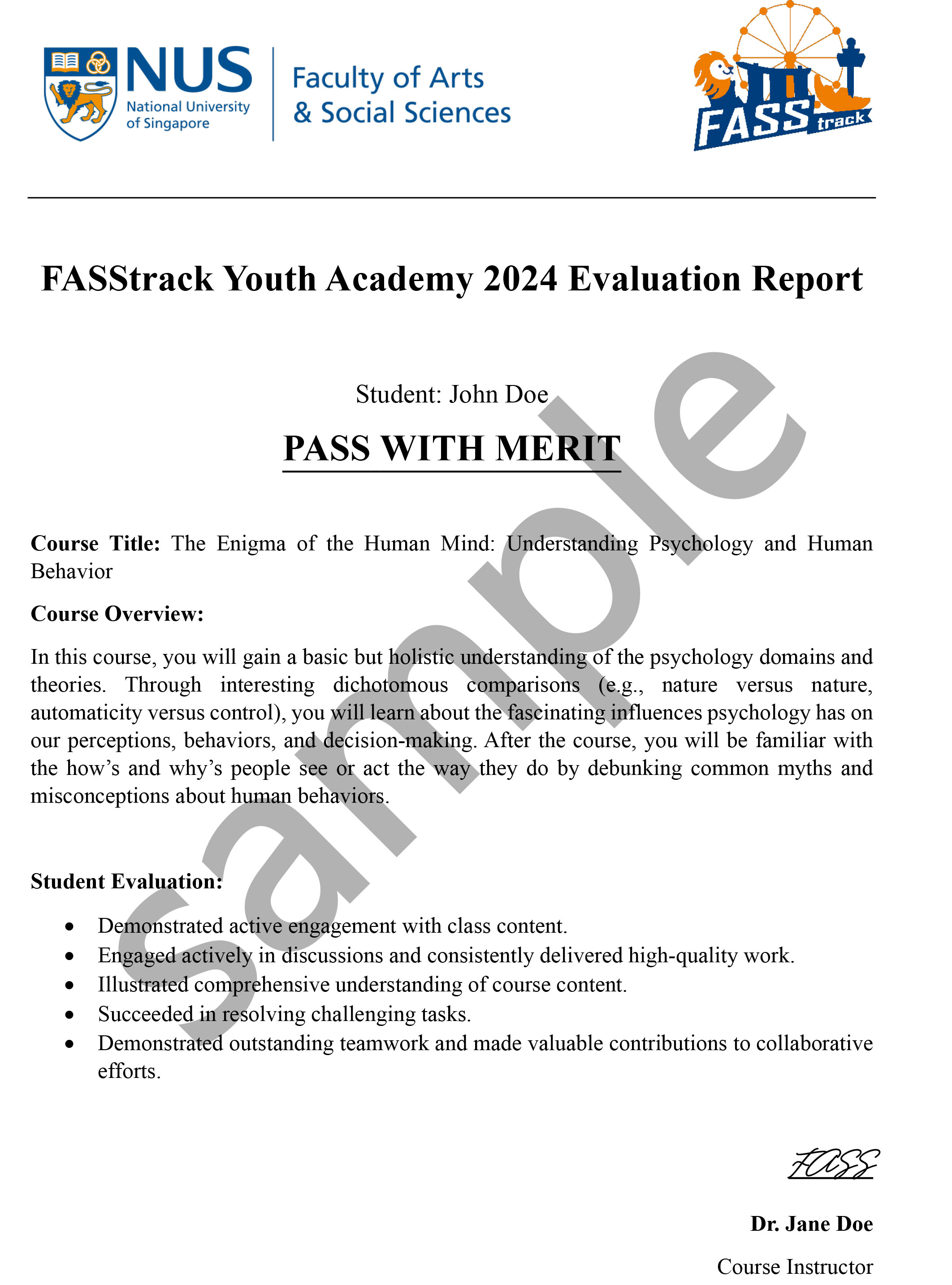
— Application —
Application
Location: Singapore
Date: July 13th - July 19th, 2025 (7 days)
Grade: 10-12
Quota: 40 students per subjects
Requirements
- English language level equivalent to IELTS level 6.0 or TOEFL 80
- Recommendation letter from your teacher as proof of English proficiency, or a phone/online interview with an ASEEDER staff member
*Priority for awarded students from ASEEDER STEM assessment
Fee
- Includes: tuition, business visits, cultural exploration fees; ASEEDER group leader service fee; local transportation fees; international insurance fees; learning materials fees.
- Excludes: accommodation fees (optional accomodation booking service); international transportation costs to and from Singapore (departure and arrival from Beijing/Shanghai/Shenzhen/Hong Kong, you can use a third-party service or ASEEDER' s unified service); the food expenses during the stay in Singapore.
